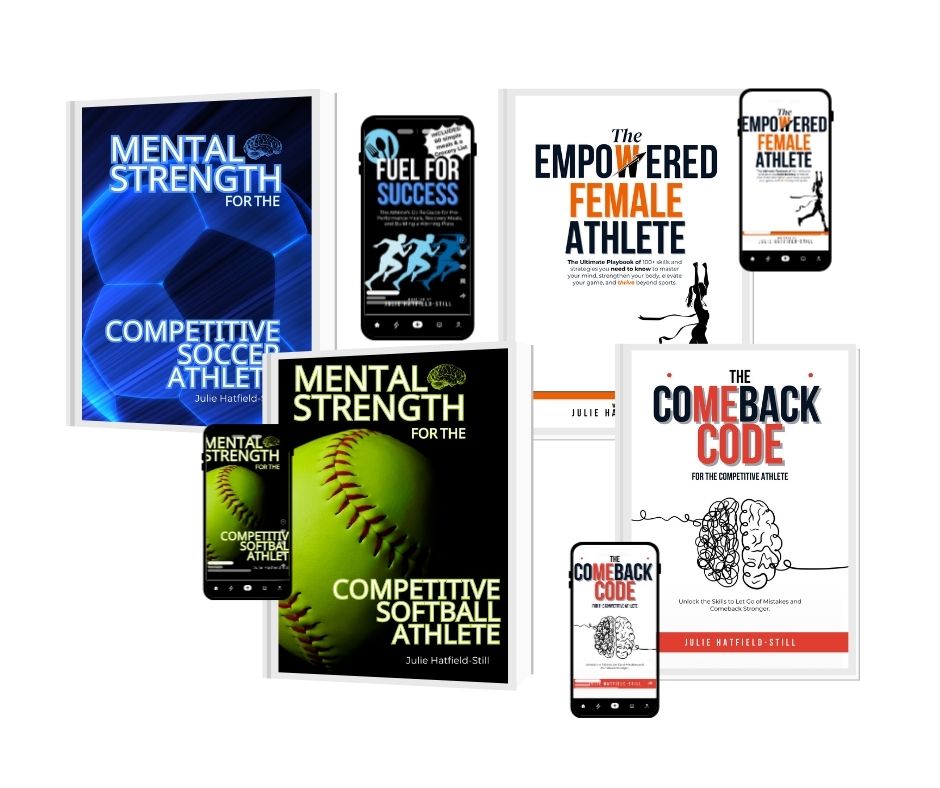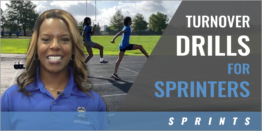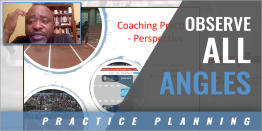|
By: Julie Hatfield-Still Athletics are about more than just winning games or improving physical skills, it's also a critical time for building the mental strength athletes need to succeed in sports and life. As a coach, you play a key role in shaping how your athletes handle challenges, setbacks, and pressure. Too often, athletes (and even coaches) fall into the trap of thinking that mindset is static, that someone is either "mentally tough" or they are not. But this couldn't be further from the truth. The mind is incredibly agile, capable of adapting, learning, and growing when given the right tools. Despite the word 'mind-SET', there is nothing set about our minds and in this article, I'll share three simple ways to help your athlete(s) build their mental strength today. Mental strength isn't something athletes are simply born with; it's a skill that can be developed, much like physical conditioning and the skills of their sport. Mental strength is the ability to stay focused, confident, and resilient under pressure. If that is something you want to help athletes with, then keep reading. By focusing on the simple strategies I provide in this article, you can empower your athletes to thrive both in their sport and beyond the game. 1. Flip the Script on Failure Failure is often seen as something to fear or avoid, but it's one of the best growth opportunities. Encourage your athletes to view failures not as permanent setbacks, but as temporary and valuable feedback. Reflection is key to this process. After a mistake or loss, guide athletes through reflective questions such as:
To build on this further, teach athletes to "flip the script." This tool involves re-framing unhelpful or unproductive thoughts into helpful and productive ones. If an athlete consistently thinks thoughts that aren't supportive of their goals, they will get results that are not supportive of their goals. Likewise, when they "flip the script" to productive and helpful thoughts, it's only a matter of time before they start to see more productive and helpful results. For example: Instead of, "I'll never be good at this," or "I'm not good enough" encourage them to think, "I'm learning and improving every day" or "I give my best each rep". Another common flip is replacing "I let my team down," with, "I will come back stronger." Use practice scenarios to help athletes rehearse flipping the script in real time, turning setbacks into stepping stones for future success. This mental shift helps athletes see failure as a natural part of growth, building their resilience and confidence. 2. The Power of a "Reset Routine" Athletes often face moments when the pressure feels overwhelming a missed opportunity, a critical error, or a tough loss. In these moments you have an opportunity to teach them how to reset mentally and physically so they can move forward. One effective technique is the "Box Breathing" method:
Other breathing techniques work well too, but I love box breathing for resets because often athletes will count 1-2-3-4, and in their counting, they are reconnecting and becoming present with themselves. Additionally, once athletes can 'catch their breath' after a setback, introduce physical and verbal reset cues to complement breathing techniques. Here are some examples that you can use while explaining this concept to your athletes. Mantras: Encourage athletes to develop a simple, empowering phrase like "I've got this" or "Next play, best play." One-Word Cues: Words like "Reset," "Focus," or "Breathe" can act as quick mental triggers. Physical Actions: A clap of the hands, a full-body shake, or brushing their hands together can help athletes physically release tension and refocus. Have athletes practice these reset routines during practice and simulate high-pressure scenarios where they'll need to use them. Encourage them to apply these techniques beyond sports-for example, before a big test or after a tough conversation-to build their overall mental resilience and get even more reps in. 3. Prioritize Rest and Recovery We can't build mental strength without giving our minds time to rest and recover from the daily grind. Just as muscles need time to repair after intense training, the brain requires downtime to process, recharge, and grow. Encourage your athletes to prioritize mental breaks and model this behavior as a coach. Here are a several simple ways to integrate mental rest & recovery.
There are many things you can do on these days to reinforce the importance of mental wellness for your athletes. For example, yoga and stretching, team building activities, volunteering or serving in your community or inviting a guest speaker to host a workshop. In addition, allow athletes to explore creative activities, such as drawing, painting, or even writing letters to their future selves. These exercises can help them process emotions and think about their goals. Sometimes, the best mental "edge" day is simply a fun, pressure-free practice. Play music, set up casual games, and let athletes enjoy a lighthearted break from their usual routine. By integrating rest and recovery into their routines, athletes will develop the capacity to handle stress more effectively and maintain peak mental performance. By re-framing failure, practicing mental resets, and prioritizing rest and recovery, you're giving your athletes the tools to build lasting mental strength. Remember, their minds are never "set." With consistent training, their mental agility, strength, and resilience can grow just as much as their physical abilities. Start implementing these strategies today, and watch your athletes thrive both in their game and beyond. Written by Coach Julie Hatfield-Still
Julie Hatfield-Still is an entrepreneur, coach, author, and advocate for empowering athletes to unlock their full potential in and beyond their game. With a passion for developing mental strength and resilience, Julie has authored books for Female Athletes and Mental Strength in Softball and Soccer. She is also the Founder and President of Beyond The Game Alliance. This non-profit organization provides holistic and proactive workshops in Nutrition, Mental Strength & Sports Psychology, Injury Resilience, Recovery, Career Development, and more. Beyond the Game Alliance comes alongside Teams, Schools, and Sports Organizations to support their athletes' needs by providing awareness, access, and affordability for services and coaching for athletes. When Julie isn't writing, running a non-profit or coaching, she's most importantly, dedicated to educating her two sons and creating a simple life with her family. Learn more about Beyond The Game Alliance at BeyondTheGameAlliance.org or Follow Us on Social Media (Facebook and Instagram).
Find Books For Athletes used by Coaches on Amazon: |








